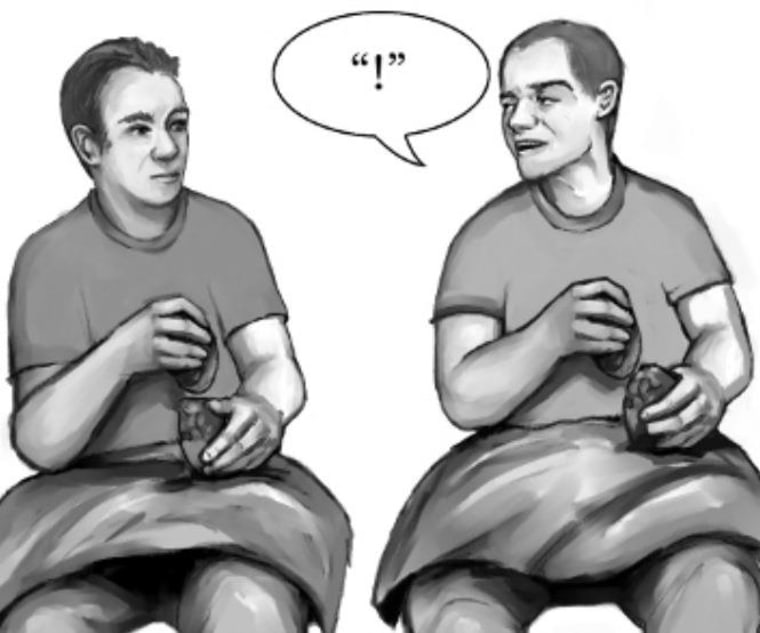"You're doing it wrong," or a series of grunts to that effect, may have been among the first words used in human conversation, according to scientists studying the development of ancient tools. In a study published Tuesday by Nature Communications, researchers suggest that language co-evolved with toolmaking.
They base that conclusion on the results of an experiment that simulated what early humans had to go through in order to produce cutting tools using a technique called Oldowan stone-knapping. The process, which stuck around as the state of the art between 2.5 million and 1.8 million years ago, involves striking off flakes of rock by using a hammerstone in precise ways.
The researchers found that spoken communication worked much better than wordless imitation or gestures when it came to teaching 184 modern-day volunteers how to shape the flint tools. They said advances in communication, such as a proto-language, might have helped humans make the rapid leap 1.8 million years ago from Oldowan tool technology to more advanced Acheulean stone tools, including handaxes.
IN-DEPTH
- Fossil Turns Back the Time Frame in Tool Use
- Oldest Stone Hand Axes Unearthed
- Fossils Suggest 'Lucy' Species Used Stone Tools
SOCIAL
— Alan Boyle
The principal authors of "Experimental Evidence for the Co-evolution of Hominin Tool-Making Teaching and Language" are Thomas Morgan of the University of California at Berkeley and Natalie Uomini of the University of Liverpool. Other authors include L.E. Rendell, L. Chouinard-Thuly, S.E. Street, H.M. Lewis, C.P. Cross, C. Evans, R. Kearney, I. de la Torre, A. Whiten and K.N. Laland. For more information, check out Berkeley's news release.
